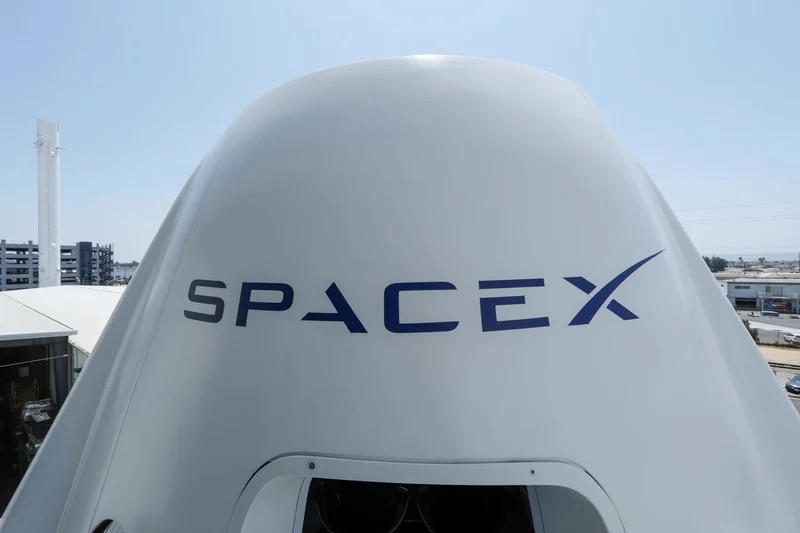
SpaceX, meanwhile, has resumed its campaign to gain access to the 2GHz band. EchoStar is only allowed to use this spectrum for mobile satellite services. The company has recently filed a new application with the Federal Communications Commission (FCC). That’s in contrast to their ask that was rejected a year ago. This recent action comes on the heels of the FCC’s request for public comment on whether EchoStar is making actual use of the 2GHz band.
SpaceX’s Push for Spectrum Use
The FCC’s inquiry comes amid growing scrutiny of EchoStar’s control over the spectrum. As Commissioner Carr pointed out, the company obtained a huge number of valuable FCC spectrum licenses without any clear explanation of why they would use them. In a recent letter to EchoStar’s CEO Charles Ergen, Carr expressed concerns regarding the firm’s management of these licenses.
SpaceX plans to use the 2GHz spectrum for its new, cellular Starlink service. For now, this service runs on T-Mobile’s 1.91 to 1.995GHz bands in the United States. According to the company, EchoStar’s lack of action is a significant squandering of precious mobile satellite spectrum.
“EchoStar’s inaction is not only a fundamental waste of valuable MSS spectrum, but also an opportunity for other more motivated and capable next-generation satellite system operators to more intensively use the spectrum to provide mobile services to Americans in underserved and unserved areas.” – SpaceX
In response to SpaceX’s application, EchoStar criticized it as a “transparently bad faith attempt to usurp the spectrum rights of a competitor.” The company highlighted its ongoing efforts, stating,
“We are now testing new S-band (2 to 4GHz) services in both North America and Europe, and this year we launched an LEO satellite with several more planned in the coming months.” – EchoStar
EchoStar also filed a detailed response to the FCC defending its use of the 2GHz band. The filing emphasized the company’s deployment of more than 24,000 5G sites, coverage for over 80% of the U.S. population, and active investments in Open Radio Access Network (Open RAN) and direct-to-device (D2D) satellite services. EchoStar warned that recent regulatory uncertainty has created a “dark cloud” over its ability to invest, noting that it has already spent billions acquiring and developing the spectrum.
“These actions have created a dark cloud of uncertainty over EchoStar’s spectrum rights and its Open RAN 5G network. This cloud has effectively frozen EchoStar’s decision making — it cannot reasonably invest more capital into a buildout if the Commission indicates it may take away its licenses through unprecedented actions.”
This is further evidence of the cutthroat competition gripping the satellite industry. These companies are aggressively pursuing growth opportunities by extending their services and focusing on previously underserved or unserved markets. In a recent webinar, Hamid Akhavan, a leading voice in the U.S. satellite industry, underscored the value of this communication infrastructure.
“If I had a satellite today, I would not launch it today,” – Hamid Akhavan
SpaceX’s application underscores its commitment to expanding its MSS capabilities. The company thinks this new access will increase its overall capacity and lower latency for mobile customers. This policy change would have the effect of increasing access to care nationwide.
“I would not because the satellite has a life of several years in the LEO system. And if the satellite goes up there, but there are no devices to talk to, what is the point?” – Hamid Akhavan
Industry Competition and Stakeholder Concerns
As the FCC further considers SpaceX’s band application and EchoStar’s current use of the 2GHz band, industry stakeholders are hoping to see greater accountability on both sides. As of this publishing, EchoStar has not returned requests for comment about its rumored usage of the spectrum. This quiet casts a long shadow of uncertainty as to what’s coming next.
“Granting this application will enable SpaceX to augment its MSS capabilities and leverage its next generation satellite constellation to provide increased capacity, reduced latency, and broader service coverage for mobile users across the United States, including those users underserved or unserved by existing networks.” – SpaceX
As the FCC reviews both SpaceX’s application and EchoStar’s current usage of the 2GHz band, industry stakeholders watch closely. EchoStar has yet to respond to inquiries regarding its usage of the spectrum, leaving room for speculation about potential future developments.
Author’s Opinion
The 2GHz spectrum battle reflects a broader shift in the satellite and wireless industries, where established license holders like EchoStar and challengers like SpaceX are colliding over how best to use limited resources. While SpaceX argues for more aggressive utilization to serve underserved areas, EchoStar defends its track record of investment, deployment, and innovation, including its growing 5G and satellite infrastructure. This isn’t just a question of spectrum efficiency—it’s a test of how regulators balance legacy rights with evolving technologies, and the FCC’s decision could set a precedent for future spectrum management.
Featured image credit: FMT
For more stories like it, click the +Follow button at the top of this page to follow us.
